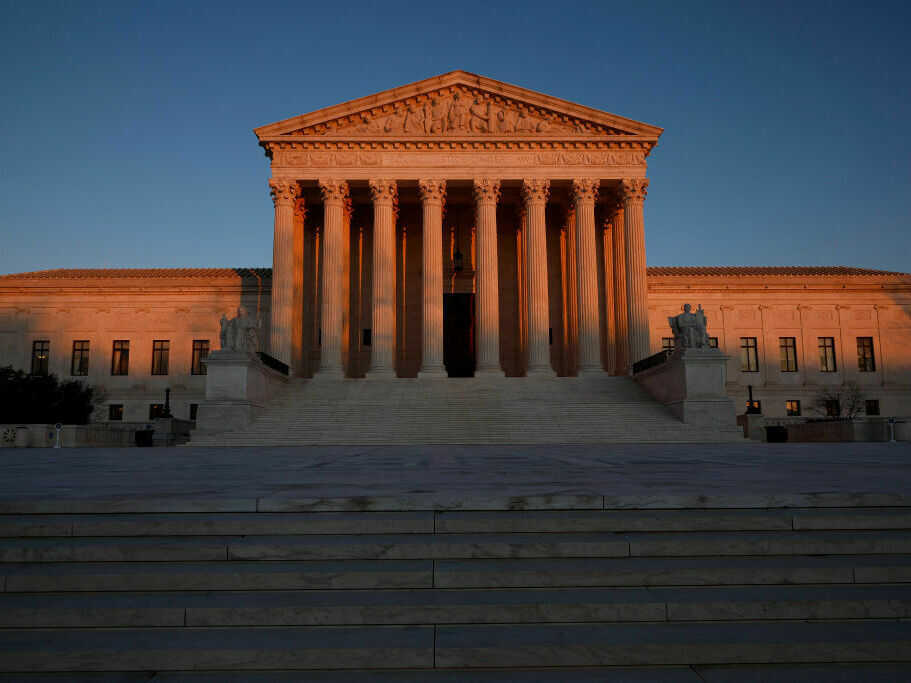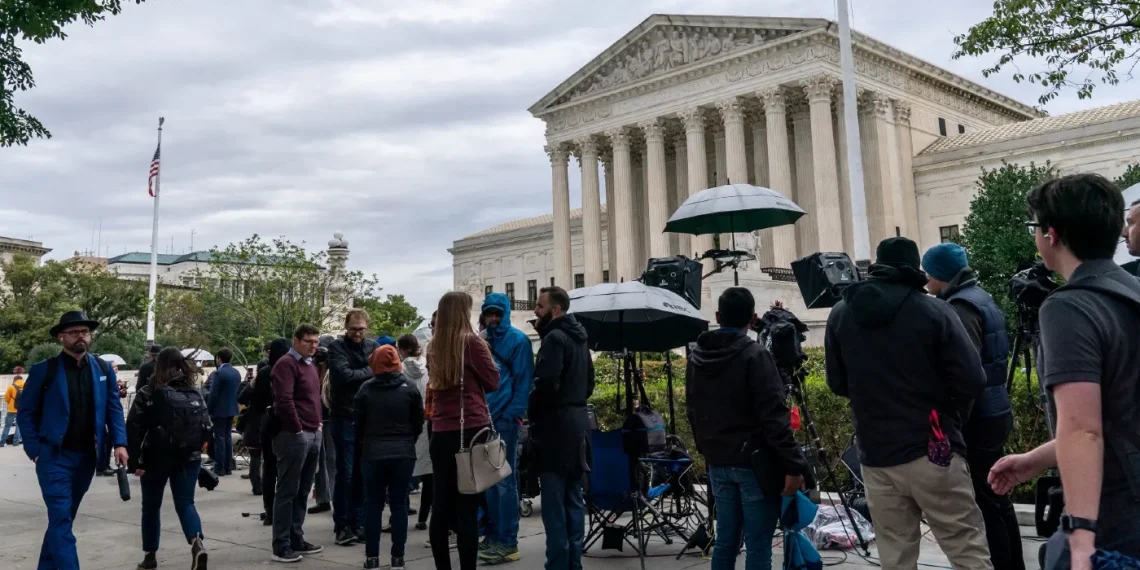The U.S. Supreme Court delves into the contentious realm of social media content moderation, focusing on a challenge to the Biden administration‘s approach to combating misinformation.
The case centers on whether the administration’s efforts to prompt platforms like Facebook, YouTube, and Twitter to remove posts deemed misleading about elections and COVID-19 infringe upon free speech rights.
Republican-led states, along with individual social media users, brought the lawsuit, arguing that the government’s actions violated the First Amendment. They contend that the administration’s communication with social media companies crossed the line into coercion, resulting in the censorship of certain viewpoints.

The administration defends its actions as necessary steps to address the dangers posed by online misinformation, particularly regarding vaccines during the pandemic. However, critics argue that such interventions stifle legitimate discourse and unfairly target conservative voices.
This case mirrors broader concerns over the role of social media platforms in shaping public discourse and the spread of misinformation.
It follows a separate case in which the Supreme Court considered state laws aimed at regulating content moderation practices, reflecting ongoing tensions over the balance between free speech and platform regulation.
The Justice Department has defended the administration’s actions, emphasizing the longstanding practice of government officials engaging in public discourse and informing on matters of public concern.

However, opponents argue that government pressure on platforms constitutes state action, thereby violating free speech principles.
The Supreme Court’s ruling, expected by June, carries significant implications for the future of online speech regulation and the boundaries of governmental influence on social media platforms. It highlights the complex interplay between combating misinformation and upholding constitutional rights in the digital age.




